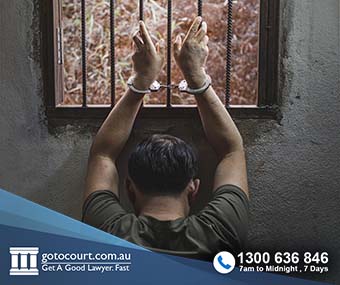Breach of Bail in the Northern Territory
If a person is charged with an offence in the Northern Territory and released from custody on bail, they must obey all of the conditions set out in their bail and attend court on every occasion that they are required to. The law on bail in the Northern Territory is outlined in the Bail Act. If a person breaches the conditions of their bail, they may be charged with the offence of breaching bail. Their bail may also be revoked. This article deals with breaches of bail in the NT.
Offence to breach bail
It is an offence to engage in conduct that is a breach of a bail undertaking or to fail to attend court when required to do so while on bail. In the Northern Territory the maximum penalty for breaching bail is a fine of 200 penalty units or imprisonment for two years.
A person is not guilty of breaching bail if they can prove that they had a reasonable excuse for the conduct that made up the breach or for failing to come to court. Example of this are failing to attend court because of a serious medical problem or failing to report to the police as required because of having no transport to get tot he police station.
The penalty that the court gives a person for breaching their bail cannot be more than the maximum penalty that it can give for the offence that the person is on bail for.
Which court will a breach of bail be heard in?
If the bail is for a matter that is in the Supreme Court or Court of Criminal Appeal then the breach proceedings will be heard in the Supreme Court. If the bail is for a Magistrates Court matter, the breach will be dealt with in the Magistrates Court.
Arrest without warrant
The police can arrest a person without a warrant and take them before a court if they believe that they have or are about to breach their bail undertaking. A magistrate or judge can also issue a warrant to arrest a person and bring them to court for failing to appear in court or for breaching their bail.
A summons to come to court can also be issued for a breach of bail.
Consequences of breaching bail
If a court finds that a person has breached their bail undertaking and the offence they are on bail for is a serious violence offence or an offence that has a presumption against bail, then it must revoke their bail. If the court revokes bail, it may grant bail again, or it may refuse bail and remand the person in custody.
If a court finds that a person has breached their bail in respect of any other offence, it has a discretion as to whether revoke bail, vary bail or extend bail.
If a person has been found to have breached their bail, this will be recorded on their criminal record and will be taken into account if they apply for bail again in the future.
Bail surety
If a court is dealing with a breach of bail, it may decide, when making a bail order, that the liability of the person on bail or any surety under the bail must be paid, suspended or reduced. Once an order has been made the court may still, at any time, order that the order for forfeiture and payment to the Northern Territory is cancelled or suspended or that the liability of you or your sureties under the bail must be remitted, suspended or reduced, or both. The court can also make any other orders regarding the terms and conditions for the payment of the monies under the bail as it sees fit.
If you don’t comply with your bail undertaking or a bail condition and you or a surety has entered an agreement under the bail to forfeit an amount of money, the court may order that the amount is forfeited and paid to the Territory. If security or an amount of money has been deposited, a court may order that it goes towards payment of the amount ordered to be forfeited. If a court makes an order it may, on application reduce the amount of the forfeiture, or confirm, rescind or suspend its order. The amount may be referred to the Fine Recovery Unit and recovered as if it were a fine imposed by the court. The court may also order that, if the amount is not paid within 28 days, you are to be imprisoned until your liability is discharged. The time in custody is calculated at the rate of $306.00 per day until the amount left unpaid is discharged. The time served cannot be less than one day or more than three months.
If you require legal advice or representation in any legal matter, please contact Go To Court Lawyers.








